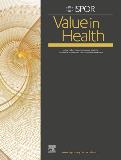
Real-world evidence on treatment outcomes can be an important aspect of the evidence basis for decision making if it is seen as credible. For real-world studies that are meant to test hypotheses about comparative-effectiveness or safety, a key aspect of credibility is that they are conducted transparently with tests that follow a prespecified analytic protocol. Preregistration of such study protocols on a public website would help build trust that their results can be used for decision-making purposes.
Establishing a Culture of Transparency for Real-World Evidence Studies...
The Real-World Evidence Transparency Initiative Partnership is a joint collaboration and ongoing effort between ISPOR, the International Society for Pharmacoepidemiology, the Duke-Margolis Center for Health Policy, and the National Pharmaceutical Council. The objective of this initiative is to establish a culture of transparency for study analysis and reporting of hypothesis evaluating real-world evidence studies on treatment effects.
Improving Transparency to Build Trust...
 The Real-World Evidence Transparency Initiative published a plan to encourage routine registration of noninterventional real-world evidence studies used to evaluate treatment effects. The report, “Improving Transparency to Build Trust in Real-World Secondary Data Studies for Hypothesis Testing—Why, What, and How: Recommendations and a Road Map from the Real-World Evidence Transparency Initiative,”
was published in the September 2020 issue of Value in Health.
The Real-World Evidence Transparency Initiative published a plan to encourage routine registration of noninterventional real-world evidence studies used to evaluate treatment effects. The report, “Improving Transparency to Build Trust in Real-World Secondary Data Studies for Hypothesis Testing—Why, What, and How: Recommendations and a Road Map from the Real-World Evidence Transparency Initiative,”
was published in the September 2020 issue of Value in Health.
More...
The report, “Improving Transparency to Build Trust in Real-World Secondary Data Studies for Hypothesis Testing—Why, What, and How: Recommendations and a Road Map from the Real-World Evidence Transparency Initiative,” was published in the September 2020 issue of Value in Health. The plan includes specifying the rationale for registering hypothesis-evaluating treatment effectiveness real-world evidence studies, the studies that should be registered, where and when these studies should be registered, how and when analytic deviations from protocols should be reported, how and when to publish results, and incentives to encourage registration.
Real-World Evidence Registry
The Real-World Evidence Registry provides researchers with a fit-for-purpose platform to register their study designs before they begin work to facilitate the transparency needed to elevate the trust in the study results.
More...
Real-world evidence studies can be used for hypothesis evaluation of treatment effects including safety (HETE studies). However these studies can also be perceived as less rigorous than clinical trials especially when not preregistered in a public setting such as ClinicalTrials.gov or the EU-PAS register.
ISPOR and its partners ISPE, NPC, and Duke Margolis have developed a simplified registration site especially for RWE HETE studies using secondary data. This searchable site provides a place for preregistration of studies that may not require registration for regulatory purposes but benefit from the rigor of transparent study methods and also provide a reference (such as a URL or doi) to share with peer reviewers, assessors, or other decision making bodies. Researchers can get started ‘here’ by creating a profile on the Open Sciences Framework and registering their study on the RWE Registry.
Shaking the Myth of Real-World Evidence
On-Demand Webinar
Learn more by watching the on-demand webinar, “Shaking the Myth of Real-World Evidence: Updates from the RWE Transparency Initiative.” This session provides updates from the initiative including a walk-through of the study registration site and updates on the special task force developing a standardized RWE protocol template.
Additional Resources
- Real-World Evidence Registry
 Good Practices Reports and Other ISPOR Reports from Value in Health
Good Practices Reports and Other ISPOR Reports from Value in Health
- HARmonized Protocol Template to Enhance Reproducibility of Hypothesis Evaluating Real-World Evidence Studies on Treatment Effects: A Good Practices Report of a Joint ISPE/ISPOR Task Force
- "Improving Transparency to Build Trust in Real-World Secondary Data Studies for Hypothesis Testing—Why, What, and How: Recommendations and a Road Map from the Real-World Evidence Transparency Initiative"
- "Good Practices for Real-World Data Studies of Treatment and/or Comparative Effectiveness"
- "Reporting to Improve Reproducibility and Facilitate Validity Assessment for Healthcare Database Studies V1.0"
- "Unlocking the Promise of Real-World Evidence" (Value & Outcomes Spotlight, Vol. 6, No. 5)
- ISPOR's Real-World Evidence Strategic Initiatives
Conferences & Summits

May 7, 2023
<a href="/education-training/short-courses">Back to all short courses</a><br /><br /><strong>Leveraging Real World Evidence to Support Patient Safety Monitoring After Clinical Trials</strong> <p><strong><br />LEVEL: </strong>Introductory<strong><br />TRACK: </strong>Real World Data & Information Systems <strong><br />LENGTH: </strong>4<strong> </strong>Hours | Course runs 1 day<br /><br />This short course is offered in-person at the ISPOR 2023 conference. Separate registration is required. <a target="_blank" href="/conferences-education/conferences/past-conferences/ispor-2023/about/registration-information">Visit the ISPOR 2023 website to register</a> and learn more.</p><strong><strong>Sunday, 7 May 2023 | Course runs 1 Day<br /></strong></strong>1:00PM-5:00PM Eastern Daylight Time (EDT) <br /><h5><strong><br />DESCRIPTION</strong></h5><p>With the widespread adoption of electronic health records (EHRs) and the push within the FDA to use real-world data in clinical trials, there is an opportunity to leverage these sources of data to monitor patients after a clinical trial ends. New technology makes it possible to add new approaches to post-marketing surveillance. This course is designed to provide an introduction and overview of patient-safety monitoring post-clinical trials and insight into how electronic health data can be used to support post-marketing surveillance. The course will start with an overview of the current approaches that the FDA uses to monitor drug and device safety through standards-based reporting, traditional safety studies, disease and device-specific registries and other safety monitoring programs (such as AHRQ safety reporting) to assess patient safety. </p><p>The second portion of the course will explore how new technology and standards such as privacy-preserving record linkage (PPRL linkage), active surveillance and clinical trial data handling strategies can improve both current, and future assessments of patient safety. The hope is that by understanding these new approaches, and anticipating how they can be used to support post-marketing surveillance, participants will be able to develop a real-world data strategy that can reduce cost and burden for safety monitoring and research. Ultimately, these initiatives will be building blocks in developing a learning health system, where each interaction that a patient or clinical trials participant has with the health system generates real-world data suitable for patient safety monitoring and post-marketing surveillance. <strong><em>This course is designed for those with limited experience in the area of utilizing real-world evidence to support patient safety or for those who want more information and experience.</em></strong></p><p>Registrants receive a digital course book. Copyright, Trademark and Confidentiality Policies apply.</p><p><strong>FACULTY MEMBERS</strong></p><strong></strong><div><strong></strong></div><div><strong></strong></div><div><strong></strong></div><div></div><div><strong>Vera Mucaj, PhD</strong></div><div>Chief Scientific Officer </div><div>Datavant</div><div>San Francisco, CA, USA</div><div><br /></div><div><strong>Karin Eisinger, PhD</strong></div><div>Assistant Professor in Cancer Research </div><div>University of Pennsylvania</div><div>Philadelphia, PA, USA</div><div><br /></div><div><strong>Abel Kho, MD</strong></div><div>Professor of Medicine and Preventive Medicine </div><div>(Health and Biomedical Informatics) and Director for </div><div>Institute for Public Health and Medicine </div><div>- Center for Health Information Partnerships </div><div>Northwestern University, Feinberg School of Medicine</div><div>Chicago, IL, USA</div><div><br /></div><div><br /></div><div></div><p><strong>Basic Schedule:<br /></strong>4 Hours | Course runs 1 Day</p>)
Short Courses & Webinars

May 7, 2023
<a href="/education-training/short-courses">Back to all short courses</a><br /><br /><strong>Leveraging Real World Evidence to Support Patient Safety Monitoring After Clinical Trials</strong> <p><strong><br />LEVEL: </strong>Introductory<strong><br />TRACK: </strong>Real World Data & Information Systems <strong><br />LENGTH: </strong>4<strong> </strong>Hours | Course runs 1 day<br /><br />This short course is offered in-person at the ISPOR 2023 conference. Separate registration is required. <a target="_blank" href="/conferences-education/conferences/past-conferences/ispor-2023/about/registration-information">Visit the ISPOR 2023 website to register</a> and learn more.</p><strong><strong>Sunday, 7 May 2023 | Course runs 1 Day<br /></strong></strong>1:00PM-5:00PM Eastern Daylight Time (EDT) <br /><h5><strong><br />DESCRIPTION</strong></h5><p>With the widespread adoption of electronic health records (EHRs) and the push within the FDA to use real-world data in clinical trials, there is an opportunity to leverage these sources of data to monitor patients after a clinical trial ends. New technology makes it possible to add new approaches to post-marketing surveillance. This course is designed to provide an introduction and overview of patient-safety monitoring post-clinical trials and insight into how electronic health data can be used to support post-marketing surveillance. The course will start with an overview of the current approaches that the FDA uses to monitor drug and device safety through standards-based reporting, traditional safety studies, disease and device-specific registries and other safety monitoring programs (such as AHRQ safety reporting) to assess patient safety. </p><p>The second portion of the course will explore how new technology and standards such as privacy-preserving record linkage (PPRL linkage), active surveillance and clinical trial data handling strategies can improve both current, and future assessments of patient safety. The hope is that by understanding these new approaches, and anticipating how they can be used to support post-marketing surveillance, participants will be able to develop a real-world data strategy that can reduce cost and burden for safety monitoring and research. Ultimately, these initiatives will be building blocks in developing a learning health system, where each interaction that a patient or clinical trials participant has with the health system generates real-world data suitable for patient safety monitoring and post-marketing surveillance. <strong><em>This course is designed for those with limited experience in the area of utilizing real-world evidence to support patient safety or for those who want more information and experience.</em></strong></p><p>Registrants receive a digital course book. Copyright, Trademark and Confidentiality Policies apply.</p><p><strong>FACULTY MEMBERS</strong></p><strong></strong><div><strong></strong></div><div><strong></strong></div><div><strong></strong></div><div></div><div><strong>Vera Mucaj, PhD</strong></div><div>Chief Scientific Officer </div><div>Datavant</div><div>San Francisco, CA, USA</div><div><br /></div><div><strong>Karin Eisinger, PhD</strong></div><div>Assistant Professor in Cancer Research </div><div>University of Pennsylvania</div><div>Philadelphia, PA, USA</div><div><br /></div><div><strong>Abel Kho, MD</strong></div><div>Professor of Medicine and Preventive Medicine </div><div>(Health and Biomedical Informatics) and Director for </div><div>Institute for Public Health and Medicine </div><div>- Center for Health Information Partnerships </div><div>Northwestern University, Feinberg School of Medicine</div><div>Chicago, IL, USA</div><div><br /></div><div><br /></div><div></div><p><strong>Basic Schedule:<br /></strong>4 Hours | Course runs 1 Day</p>)



